What is Applique?
Overview of Applique So, what is applique? Applique is an easily recognizable form of art and decoration that is used throughout the world. The...
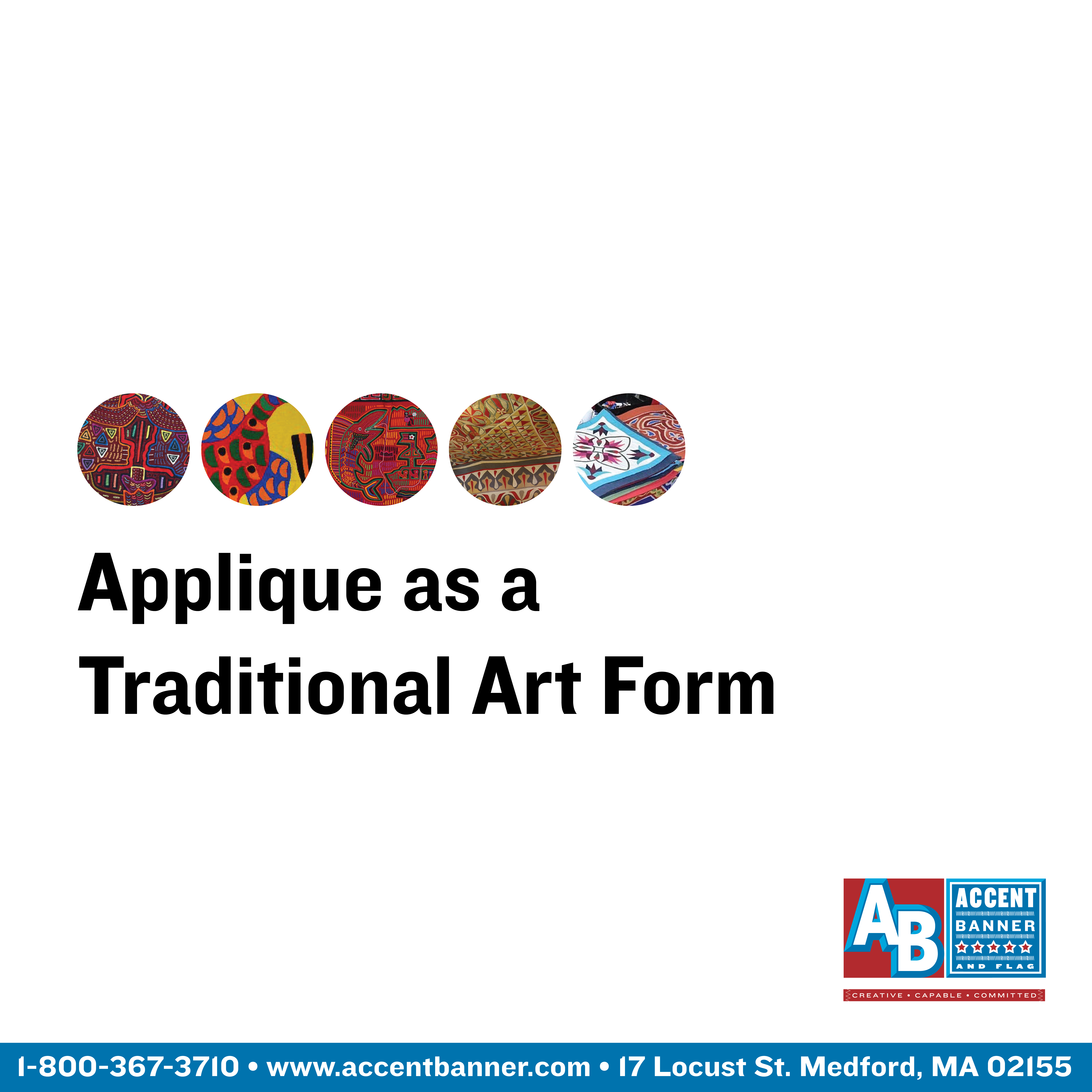
The word "appliqué" is derived from the French verb "appliquer," meaning "to put on." It is ornamental needlework in which pieces of fabric are sewn or stuck on to a larger piece to form a picture or pattern.
Cultures have used the techniques of appliqué to make clothing, tents, and ornamentation. Traditional appliqué often includes elements of daily life and nature but can also be used to express complex ideas and metaphors and culturally significant events. Here are just a few examples.
In Benin
In ancient times in the West African kingdom of Dahomey, appliqué cloths were made on commission by family guilds for people of prestige and power. Designs often included animal, plants, ships, and insignia. The designs were connected to proverbs to relate stories of power, conquest, and status.
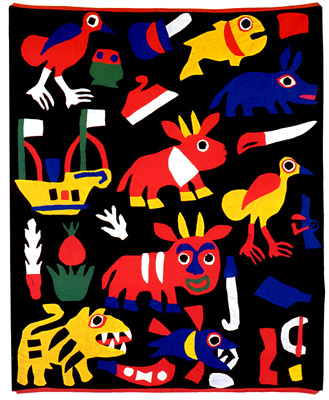
https://www.radford.edu/rbarris/Women%20and%20art/pattern%20and%20decoration.html
Retrieved May 28, 2020.
In the past, men were the producers of appliqué, creating state umbrellas, rulers' hats, association banners and hammocks, pillow tops and wall hangings. More recently, wall hangings have become popular tourist items, and this fuels the production of new appliqué cloth to fulfill market demand.
Khayamiya
This is a type of decorative appliqué textile traditionally used to decorate tents across the Middle East. They are now primarily made in Cairo, Egypt along the Street of the Tent Makers centered in a historic covered market built in the 17th century.
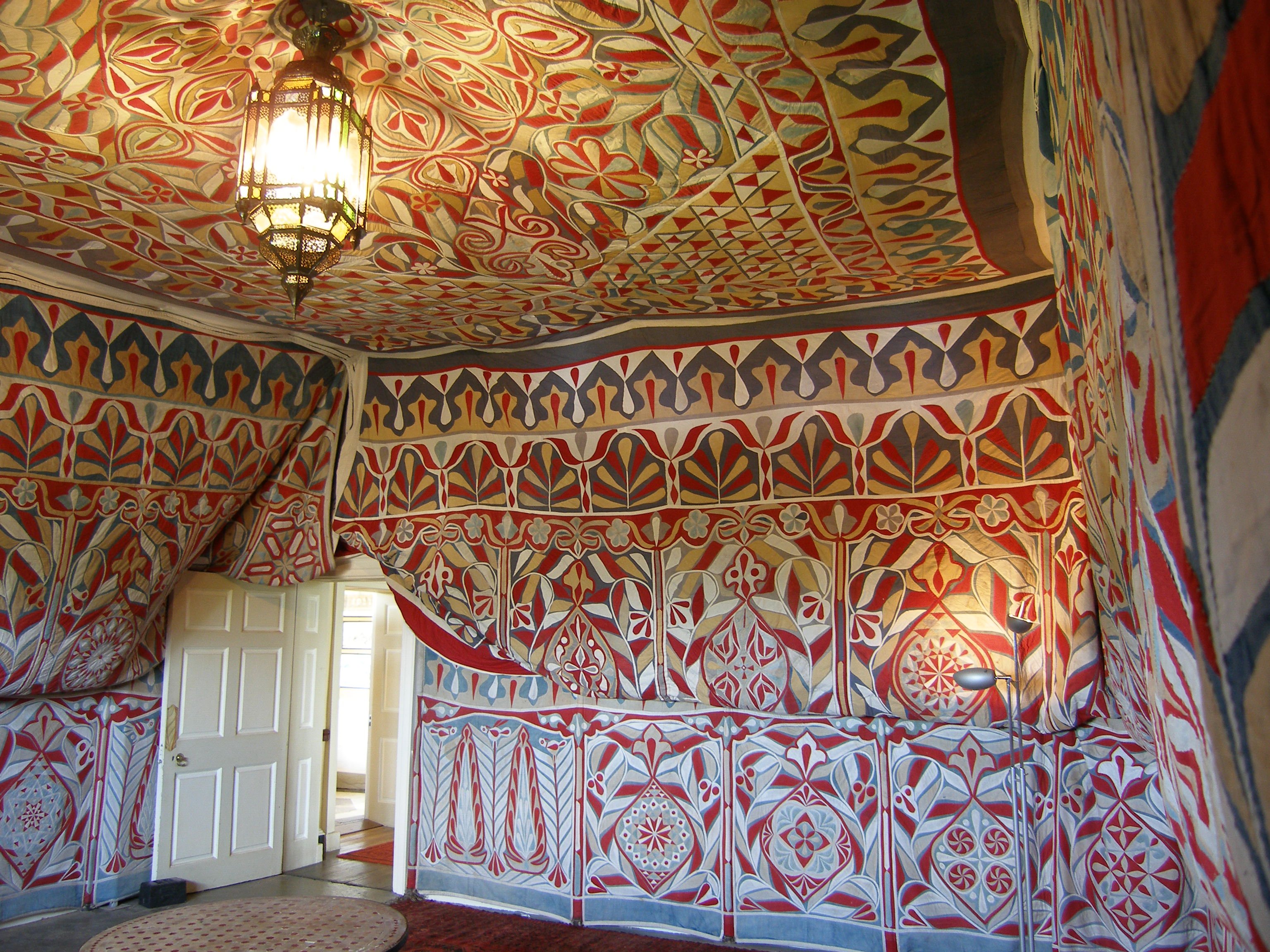
http://ethnicjewelsmagazine.com/khayamia/
Retrieved May 28, 2020.
Khayamiya are complex patterned and colorful appliqués sewn to the inside of tents, serving the functions of shelter and decoration. They possess three layers similar to quilts, a heavy backing, a field, and an elaborate appliquéd top layer. Today the Khayamiya often provide the same role as curtains, however this has diversified to cater to tourists. Functions now include cushion covers, clothing, bags, and bedding.
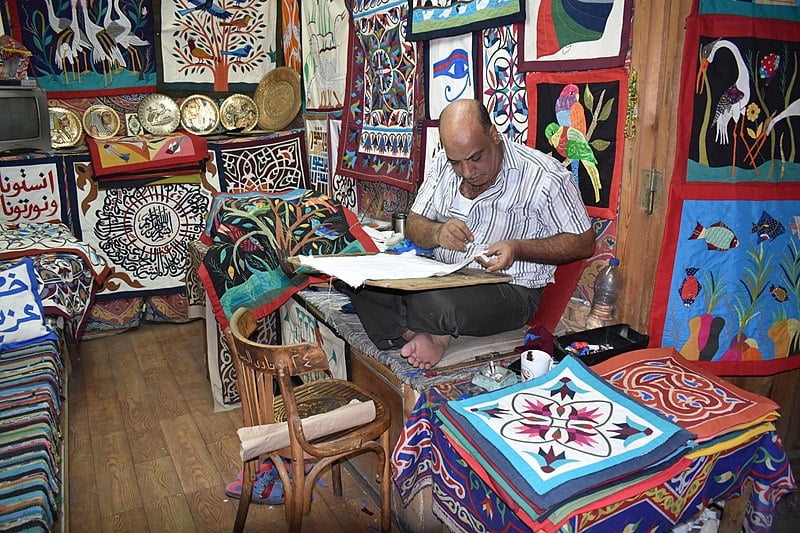
Retrieved April 8, 2020.
Historically there were thousands of regional artisans creating elaborate tents but in the present day there are 30-40 artisan stitchers working in Cairo.
Mola
Molas are a hand-made textile that is part of traditional women's clothing of the Kuna people of Panama. Molas have their origin in body painting. Only after colonization by the Spanish and contact with missionaries were the geometric designs transferred onto fabric, first by painting on the fabric directly and later by using reverse appliqué. It is not understood exactly when this technique first came into practice.
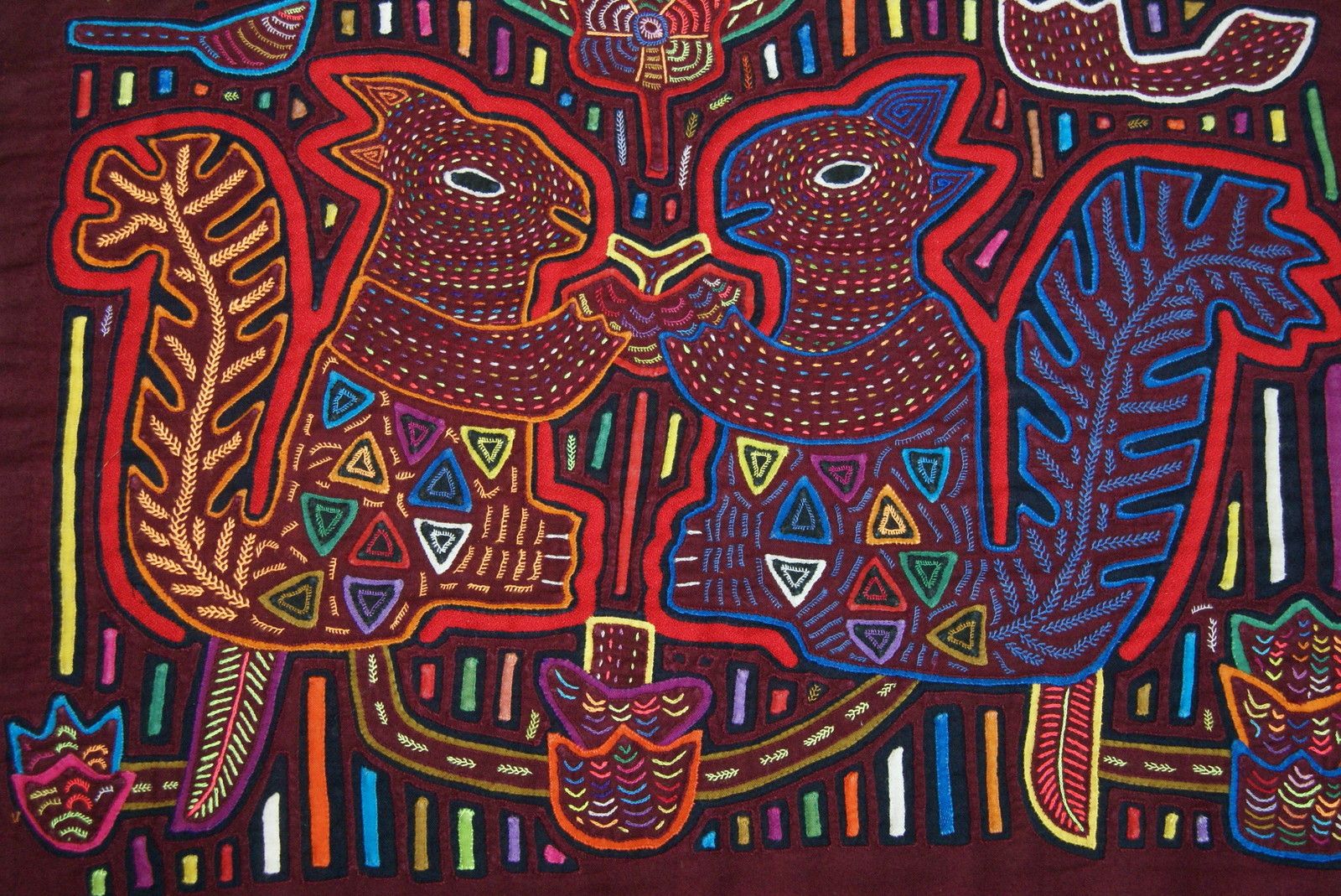
https://in.pinterest.com/pin/144748575495254301/?autologin=true&lp=true
Retrieved May 28, 2020.
Molas are hand-made using many layers (often two to seven) of different-colored cloth sewn together. The design is then formed by cutting away parts of each layer. The edges of the layers are then turned under and sewn down. The stitches are nearly invisible in the majority of pieces. The finest molas have extremely fine stitching, made using tiny needles.
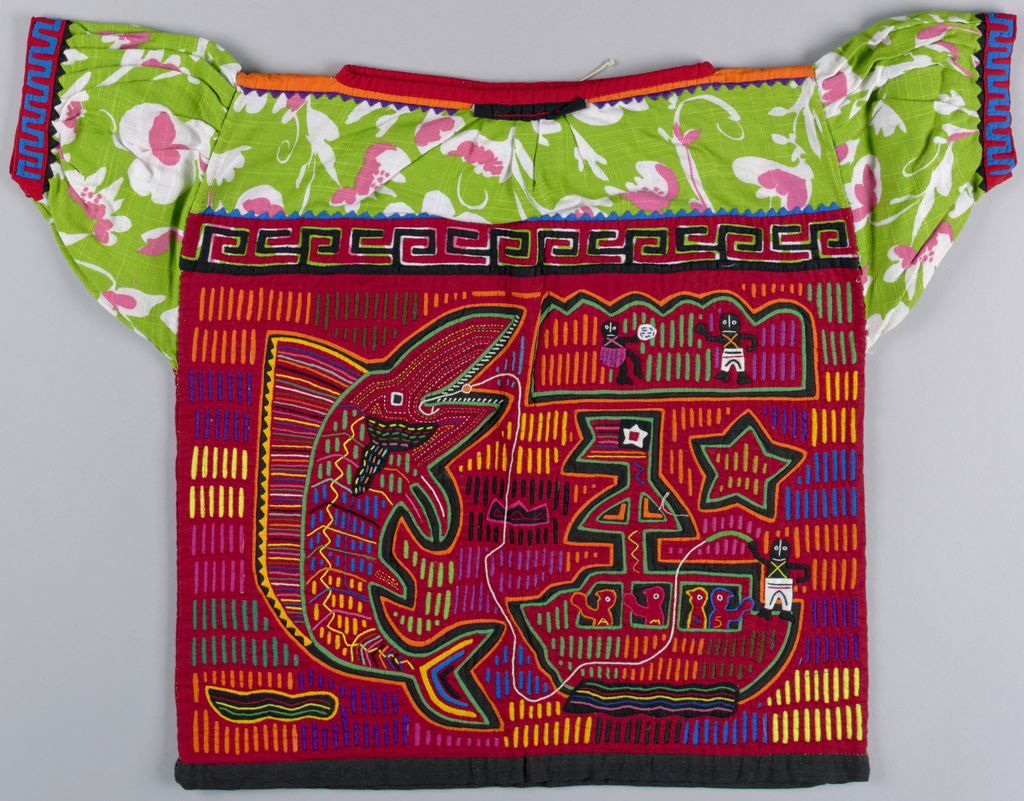
https://collection.cooperhewitt.org/objects/18467837/
Retrieved April 8, 2020.
References
https://africa.si.edu/collections/view/objects/asitem/2942/23/titleasc?t:state:flow=2482e846-44a3-4107-a9f3-71064926fd16 Retrieved April 8, 2020.
https://en.wikipedia.org/wiki/Khayamiya Retrieved April 8, 2020.
https://www.lexico.com/definition/applique Retrieved April 8, 2020.
http://www.tentmakersofcairo.com/the-history Retrieved April 8, 2020.
How Molas are Made, from Sherry Thorup. Retrieved April 8, 2020.
Perrin, Michel, 1941-2015. (1999). Magnificent molas : the art of the Kuna Indians : Tule omegan weliwar itogedi = In homage to Kuna women. Dusinberre, Deke. [Paris]: Flammarion. p. 25.
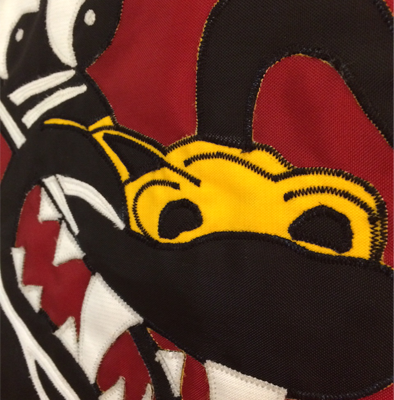
Overview of Applique So, what is applique? Applique is an easily recognizable form of art and decoration that is used throughout the world. The...

The three benefits for appliqued banner over print is that they are recyclable, durable and are aesthetically impressive.
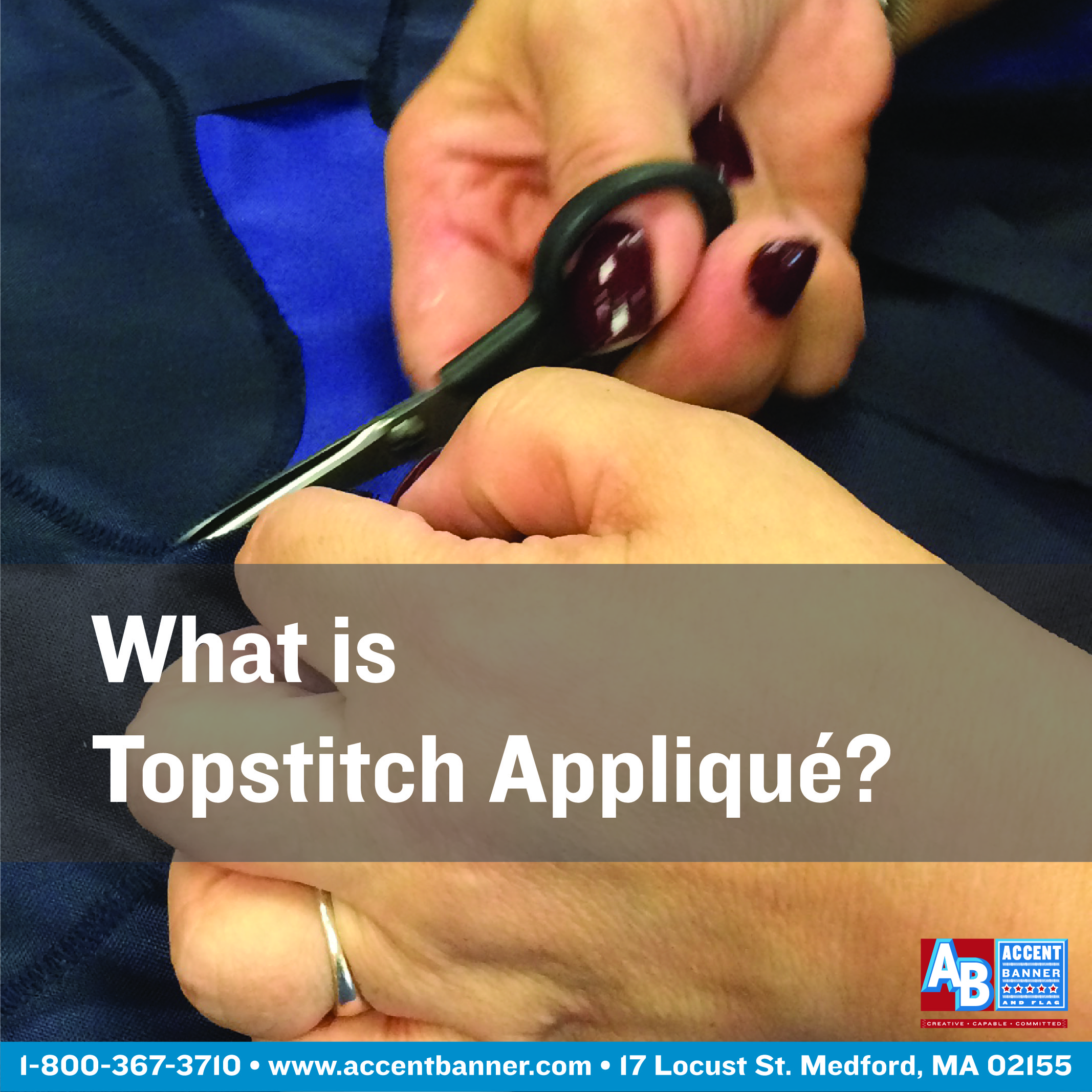
Topstitch AppliquéIn this type of Appliqué fabric is sewn down onto a backing. The fabric on the top layer will be the material that creates the...